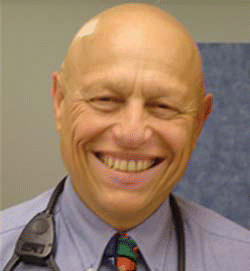In a more recent study, from 2006, by Dr. Primack and colleagues, specialists reported communication from referring generalists in only 50% of initial referrals, whereas primary care doctors reported communication from specialists after 84% of initial consultations.
Here, the authors stated, communication was strongly associated with physicians’ reported ability to provide optimal care. On the other hand, physicians in the study reported a preference for cotreatment of referred patients.
Findings also suggested that referring physicians may have more trouble when it comes to coordinating specialty care for children with complex needs-for instance, those needing referrals to more than one specialist. In some cases, parents might make additional specialist appointments (where referrals aren’t required) without telling their primary care doctor.
Communication Solutions
Being aware of what the barriers to communication are can help lead to solutions, said Dr. Primack.
In the 2003 study, problems commonly reported by specialists and generalists alike included delayed availability of providers by telephone, having to negotiate annoying automatic phone menus, and delays in transcription of dictation (only about 65% of both types of doctors noted this as a problem); about half of both sets of doctors reported trouble communicating directly with the patient’s attending physician.
Importantly, 82% of generalists reported they weren’t notified when multiple specialists came on board for their patient’s care, a problem noted by only 51% of specialists.
Doctors in the study agreed on a number of points that would facilitate communication. Key points highlighted by both generalists and specialists included a letter from the generalist to the specialist before the consultation visit; sending copies of letters to all providers involved in the care of the patient; and a phone call from the generalist to the specialist prior to the specialist consultation.
Dr. Grundfast pointed out that Medicare guidelines require details of reasons for referrals. Even though Medicare doesn’t apply to the pediatric population, it often sets the threshold for what is considered to be good practice, he said. It can be looked to as a model.
In the future, exchanging files electronically might provide the answer for some practices. Although this format is not yet in widespread use, nor is it standardized, some centers are trying out different systems.
At the Boston Medical Center, to initiate a consult in the electronic system you have to complete a little form on the screen that gives some basic information, Dr. Grundfast said.

Leave a Reply